第38章 THE RULE OF LINCOLN(5)
The events of the next day were no less shocking. The city was almost stripped of soldiers, as all available reserves had already been hurried south when Lee was advancing toward Gettysburg. But such militia as could be mustered, with a small force of federal troops, fought the mob in the streets.
Barricades were carried by storm; blood was freely shed. It was not, however, until the fourth day that the rebellion was finally quelled, chiefly by New York regiments, hurried north by Stanton--among them the famous Seventh--which swept the streets with cannon.
The aftermath of the New York riots was a correspondence between Lincoln and Seymour. The latter had demanded a suspension of the draft until the courts could decide on the constitutionality of the Conscription Act. Lincoln refused. With ten thousand troops now assembled in New York, the draft was resumed, and there was no further trouble.
The resistance to the Government in New York was but the most terrible episode in a protracted contention which involves, as Americans are beginning to see, one of the most fundamental and permanent questions of Lincoln's rule: how can the exercise of necessary war powers by the President be reconciled with the guarantees of liberty in the Constitution? It is unfortunate that Lincoln did not draw up a fully rounded statement of his own theory regarding this problem, instead of leaving it to be inferred from detached observations and from his actions.
Apparently, he felt there was nothing to do but to follow the Roman precedent and, in a case of emergency, frankly permit the use of extraordinary power. We may attribute to him that point of view expressed by a distinguished Democrat of our own day:
"Democracy has to learn how to use the dictator as a necessary war tool."* Whether Lincoln set a good model for democracy in this perilous business is still to be determined. His actions have been freely labeled usurpation. The first notorious instance occurred in 1861, during the troubles in Maryland, when he authorized military arrests of suspected persons. For the release of one of these, a certain Merryman, Chief Justice Taney issued a writ of habeas corpus**. Lincoln authorized his military representatives to disregard the writ. In 1862 he issued a proclamation suspending the privileges of the writ of habeas corpus in cases of persons charged with "discouraging volunteer enlistments, resisting military drafts, or guilty of any disloyal practice...." Such persons were to be tried by military commissions.
*President Edwin A. Alderman, of the University of Virginia.
** The Constitution permits the suspension of the privileges of the writ of habeas corpus "when in cases of rebellion or invasion the public safety may require it," but fails to provide a method of suspension. Taney held that the power to suspend lay with Congress. Five years afterward, when Chase was Chief Justice, the Supreme Court, in ex parte Milligan, took the same view and further declared that even Congress could not deprive a citizen of his right to trial by jury so long as the local civil courts are in operation. The Confederate experience differed from the Federal inasmuch as Congress kept control of the power to suspend the writ. But both governments made use of such suspension to set up martial law in districts where the local courts were open but where, from one cause or another, the Administration had not confidence in their effectiveness. Under ex parte Milligan, both Presidents and both Congresses were guilty of usurpation.
The mere layman waits for the next great hour of trial to learn whether this interpretation will stand. In the Milligan case the Chief Justice and three others dissented.
There can be little doubt that this proclamation caused something like a panic in many minds, filled them with the dread of military despotism, and contributed to the reaction against Lincoln in the autumn of 1862. Under this proclamation many arrests were made and many victims were sent to prison. So violent was the opposition that on March 3, 1863, Congress passed an act which attempted to bring the military and civil courts into cooperation, though it did not take away from the President all the dictatorial power which he had assumed. The act seems;however, to have had little general effect, and it was disregarded in the most celebrated of the cases of military arrest, that of Clement L. Vallandigham.
A representative from Ohio and one of the most vituperative anti-Lincoln men in Congress, Vallandigham in a sensational speech applied to the existing situation Chatham's words, "My lords, you cannot conquer America." He professed to see before him in the future nothing "but universal political and social revolution, anarchy, and bloodshed, compared with which the Reign of Terror in France was a merciful visitation." To escape such a future, he demanded an armistice, to be followed by a friendly peace established through foreign mediation.
Returning to Ohio after the adjournment of Congress, Vallandigham spoke to a mass-meeting in a way that was construed as rank treason by General Burnside who was in command at Cincinnati.